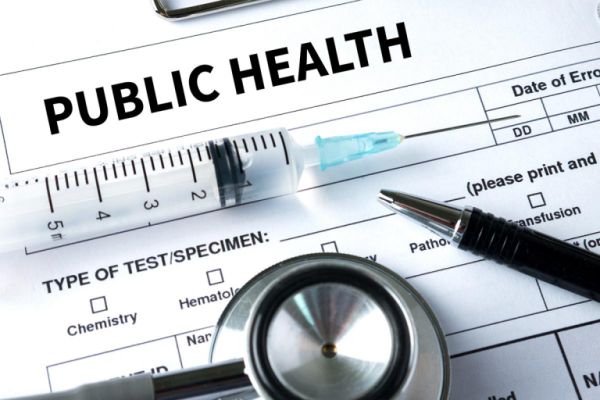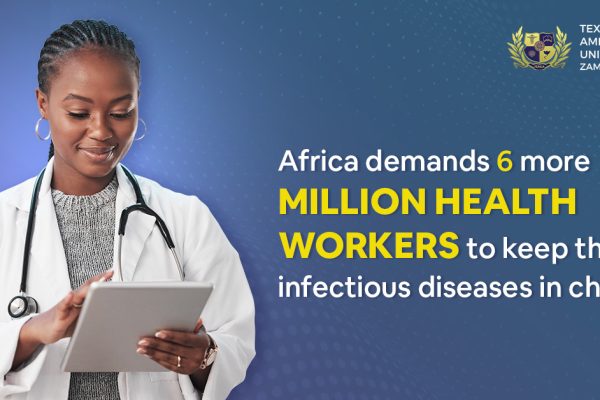|
Tired of Reading? Please listen to the blog
|
Blog Summary
Public health is really as varied in its career paths and individual growth as it is developing in regions like Africa and South-East Asia. Many may find public health relating to a local clinic or a program on diseases, but there is more to it. The careers include health educator, epidemiologist, and environmental health scientist, ranging from management of diseases to developing policies. One’s career pursuit in public health primarily depends on the degree chosen. That ranges from an associate’s degree to Ph.D. Further specializations include biostatistics, global health, and health policy. This field provides multiple career choices for committed people to improve the health of communities.
Introduction
Public health as an industry is beautiful in terms of job opportunities and professional growth, especially in geographies like Africa and South-East Asia, where the number of developing countries is more concentrated.
However, people who are not aware of the detailed specifics of the Public Health sector often relate to working in community medical clinics or driving awareness campaigns regarding the spread of diseases with careers in public health.
But this is a very narrow perspective to witness an entire industry that is quite vast, involving multiple departments and both private and public sectors. And the job might include everything from identifying diseases to creating public policy to maintaining society’s health conditions.
In this article, we’ll be giving you an idea of what the public health industry looks like and give you a detailed outlook on career opportunities in Public Health.
Job Roles within Public Health
As mentioned earlier, careers in the public health industry can be misunderstood because of their vastness and involvement with multiple sectors and departments. The job roles within public health can vary from providing medical care within a community outside a hospital, which is highly localized, to preventing epidemics globally, making health policies, and improving the health of the entire nation.
Here are some essential services that a public health department must perform:
- Monitor health status to identify and solve community health problems.
- Diagnose and investigate health problems and health hazards in the community.
- Inform, educate, and empower people about health issues.
- Mobilize community partnerships and action to identify and solve health problems.
- Develop policies and plans that support individual and community health efforts.
- Enforce laws and regulations that protect health and ensure safety.
- Link people to needed personal health services and assure the provision of health care when otherwise unavailable.
- Assure competent public and private health care workforce.
- Evaluate effectiveness, accessibility, and quality of personal and population-based health services.
- Research for new insights and innovative solutions to health problems.
Thus, to make sure the department can carry out all these services, several occupations and job profiles fall under the entire public health umbrella. And each requires a different set of skills, experiences, or type of public health degree a person possesses.
Which degrees are required for what kind of profile?
Now, we know that the type of career available in Public health depends upon the type of Public health degree the person holds. For example, if you are starting and looking for an entry-level job, an associate’s or bachelor’s degree should do good for you. But in case you want to get into more complex job roles which include lots of research and analytics, you’ll have to have a higher degree, which would make you focused on a particular specialization in this vast industry.
Three degrees are common and the most popular when it comes to Public Health:
1. Bachelor of Public Health
As the name suggests, this is the bachelor’s level degree available if a person wants to be specialized in Public Health.
And a Bachelor of Public Health degree will allow you to get into entry-level job profiles. And these jobs don’t require you to specialize in any department within Public Health. Instead, the person would be able to explore multiple specializations, and this would allow them to decide on his future steps as a Public health professional.
After graduation, students may be eligible for positions such as health educator or community outreach worker.
2. Master of Public Health
Master of Public Health MPH is the most popular degree in Public Health and is owned by most of the professionals working in the field.
This requires you to focus your education and specialize in one department.
A professional with an MPH degree is qualified to work in one of these specializations:
- Biostatistics
- Epidemiology
- Environmental Health Sciences
- Health Services Administration
- Social and Behavioural Sciences
3. Ph.D. in Public Health
A Ph.D. in Public health is the highest level of education that a person can possess in this industry. Provided by only a few select universities, Ph.D. in Public Health is a very coveted degree you can earn if you have a relevant background and want to excel in Public Health.
Not only do Ph.D. holders occupy upper technical and management positions, but even in academia, University professors and researchers may be required to have a doctoral degree. In contrast, in other management and administrative positions, it may be preferred.
Texila American University provides BPH, and Ph.D, MPH in Public Health education. Learn more about the different levels of Public Health degrees provided.

Specialties and job profiles within Public Health Field
Public Health, being such a broad field as it is, has multiple specializations a person can get into. And each discipline is so different from the other that they need a unique set of skills, and individuals might require to concentrate on one primary subject or vertical. Some specializations in public health would require professionals to focus on maths and statistics, whereas some on Social Sciences. There are some other specializations in Public Health that need individuals to focus on management, Marketing, and PR. Below are the primary specializations and career opportunities available in the Public Health field.
Biostatistics and Informatics
Biostatistics is a subset of biotechnology and statistics and requires professionals to primarily be involved in collecting, arranging, and analyzing data and interpreting its application to health care.
Public health professionals are focusing on biostatistics and use models to track the health of a population and identify trends. They may be involved in projects and studies to understand how geography and demographics affect health and risk factors.
Individuals who enter the field have plenty of job opportunities as qualified biostatisticians have colossal demand but significantly less supply. Besides this, biostatisticians also should have excellent career opportunities in academia, industry and government, and other public sectors.
Some of the career opportunities that are available to students who graduate with a public health concentration in biostatistics and informatics are:
- Biostatistician
- Medical and Health Services Manager
- Health Informatics Specialist
Community Health
Unlike biostatisticians and informatics professionals, individuals concentrating on Community health have a more on-field jobs. Community health specialists have a more holistic approach to public health. Their work involves considering all the factors and also discovering new elements that may be at play influencing the overall health of a community.
Under this specialization, professionals might require to initiate wellness programs, undertake educational activities or create resources to promote healthy living.
The following are career opportunities available to public health professionals who focus on community health.
- Health Care Administrator
- Health Educator
- Community Health Worker
Epidemiology
Epidemiology is the most popular and sought-after career prospect in Public Health.
Epidemiology is a blend of biostatistics and community health. Epidemiologists monitor the spread of diseases and the factors causing them and work to develop solutions. Just like a Biostatistician to work in the Epidemiology field, individuals need to have a strong foundation in math and statistics and the ability to interpret data. In addition, they need to understand social and economic factors and educational factors that can lead to public health threats and then use this knowledge to form an adequate response.
Epidemiologists are employed mainly by government agencies such as local health departments, the Department of Health and Human Services, and the Centers for Disease Control and Prevention. But besides the public sector, Epidemiologists might also be employed by substantial private corporations like multinational pharmaceutical companies. Some epidemiologists work independently as consultants.
The following are some career opportunities in Public Health in epidemiology.
- Epidemiologist
- Field Investigator
- Research Analyst
Environmental Health
Environmental Health as a specialization requires professionals to study the environment’s health and analyze its effect on the human population. Individuals learn about indoor and outdoor pollution, climate change, and electromagnetic fields. Their primary job role would be to work in positions focused on prevention, research, or community outreach to minimize the impact of these environmental risks.
Career opportunities titles for those working in environmental health include the following.
- Environmental Scientist
- Quality Investigator
- Environmental Engineer
Global Health
Global Health falls under the top 10 specialties in Public Health, as stated by the American Public Health Association. Unlike community health which serves localized areas, professionals in this field serve populations worldwide through a combination of research and education. Their work may involve creating ways to eliminate health problems, improve healthcare in countries and adopt public health policies that encourage healthy habits.
Professionals may travel to other countries for fieldwork. For full-time employment, graduates will often find jobs with non-profit or government agencies, although private companies may also hire Public health experts. The Office of Career Services at Columbia notes job opportunities may be most prevalent in Asia, Africa, and the Middle East.
Individuals with a public health degree in global health may have the following career opportunities.
- Refugee Coordinator
- HIV/AIDS Educator
- Project Manager
Health Policy and Management
Unlike the rest of the specializations mentioned above, to look into career opportunities in Health Policy and Management, a professional, on top of Public Health knowledge, also needs to possess knowledge about economics, politics, management, and finance.
After graduation, health policy workers may be responsible for developing policies that ensure access to medical facilities and provide uniform services across various populations.
Professionals with the right blend of interpersonal skills and public health knowledge should be well-positioned to fill career opportunities in the public and private sectors.
Here are some examples of career opportunities that may be filled by those with an education in Public Health in health policy and management.
- Health Services Manager
- Health Department Administrator
- Government Policy Analyst
Health Promotion and Communication
If you think you are good at communicating and marketing/PR and if you have a relevant public health degree, you might find substantial career opportunities in Public Health Promotion and Communication. Professionals in this concentration focus on communication skills and marketing practices. Health promotion specialists may be employed by government bodies, schools, and community organizations to communicate and encourage healthy lifestyles. Their job roles may include creating and implementing wellness programs, developing marketing campaigns, and carrying out healthcare or wellness drives in response to a health concern or crisis.
With the required skills, professionals may be able to find jobs both in and out of the health care industry.
Typical career opportunities for these professionals include the following.
- Health Education Specialist
- Health Promotion Coordinator
- Public Relations Manager
Minority Health and Health Disparities
Minority health and health disparities are a specialty that is focused on a specific population. As the name suggests, professionals under this specialization serve the minority population who do not have proper healthcare facilities. Professionals in this field are committed to understanding why there is unequal access to health services and then working to improve the situation. Job roles in the area may require public health professionals to develop ways to distribute resources and educate and improve the underserved communities in terms of healthcare.
Individuals working in the field of minority health and health disparities may have the following career opportunities:
- Public Health Nurse
- Minority Health Office Administrator
- Minority Health Research Analyst
Conclusion: Which Job role is best suited for you?
The above-mentioned specializations and career opportunities are just a few of the many in the Public Health field.
What job role that you would get heavily depends on the kind of experience you have, the skills that are required to land in any of the specializations, and also the degree that you possess. For now, it is safe to say that career opportunities in Public Health are vast, especially in developing and under-developed countries.
The Public Health courses allow health professionals to enhance their careers. It offers and adds a chance to improve their skills, explore new opportunities, and contribute to improving the health of communities. To become a health professional and for career growth, completing a public health course is the perfect choice.











